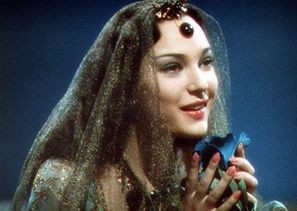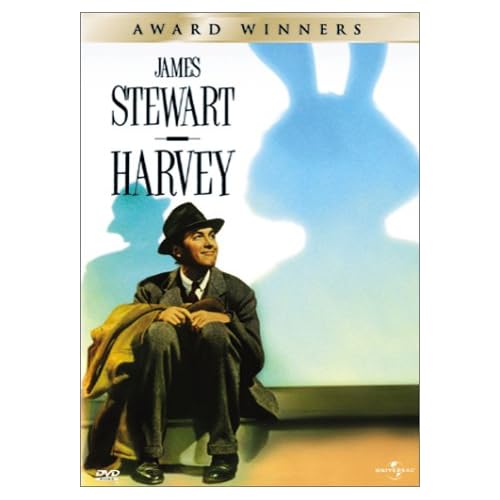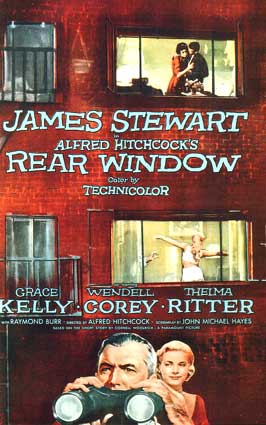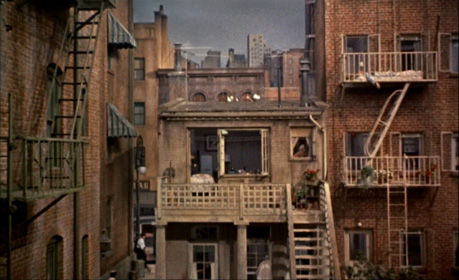If I say The Thief Of Bagdad is on my list of greatest movies, anyone who knows the history of fantasy films will immediately ask, Which one? There are several great versions, including the original silent film with Douglas Fairbanks Sr. It was remade in the sound era with Douglas Fairbanks Jr., whose version is also well worth watching. But in my opinion, the greatest version of all was made by Alexander Korda with the Indian actor Sabu, in 1940. It was largely filmed in England when WWII was well under way, and despite the fact that it had multiple directors, this Arabian Nights story rises above all others.
Wednesday, June 27, 2012
But -- Which Thief Of Bagdad?
If I say The Thief Of Bagdad is on my list of greatest movies, anyone who knows the history of fantasy films will immediately ask, Which one? There are several great versions, including the original silent film with Douglas Fairbanks Sr. It was remade in the sound era with Douglas Fairbanks Jr., whose version is also well worth watching. But in my opinion, the greatest version of all was made by Alexander Korda with the Indian actor Sabu, in 1940. It was largely filmed in England when WWII was well under way, and despite the fact that it had multiple directors, this Arabian Nights story rises above all others.
Plot
is an important factor in a good movie, but in The Thief Of Bagdad
there's a unique twist. The story is told in a non-linear
Arabian Nights style, so it starts in the middle, goes back to
the beginning, then proceeds to the end. And in keeping with
Middle-Eastern tradition, there are stories within stories, all woven
seamlessly into a lively tapestry of characters and adventures.
The
set design is inspired – gorgeous, yet subtle when compared to the
standard Hollywood concept of Arabian Nights décor. I'm especially
impressed with the colors of the walls in the palaces, pale yellow
near the bottom, but pale blue at the top, as if they're merging with
the heavens. I don't think this is actual paint on the walls, it's a
beautiful special effect that showcases the artistic and technical
expertise of that era. The art director was Vincent Korda, and he
deserves a large part of the credit for the magic of this movie.
The
film score was composed by Miklós Rózsa, and it's one of his best.
His chronicle of the writing of this score is included in his memoir,
Double Life. The movie opens
with a love song to adventure: “The sea is cruel but the sea
is clean . . .” Rózsa's score is essential fantasy film music,
enhancing the action and helping to advance the plot.
Last
but not least, the cast is wonderful. Sabu, Rex Ingram, and Conrad Veidt are
the three big stars in the move, but June Duprez may be the loveliest
princess in fantasy movie history. John Justin, as the King Ahmad, is
actually a little goofy, but intentionally so (since his character is
a pampered blue-blood with little practical experience of the world). Veidt is masterfully fiendish as the evil sorcerer Jaffar, whose only weakness
is his passion for the princess (“She has Babylonian eyes!”).
Rex Ingram is a magnificent genie, even though he can't totally shake
his New York accent. You can forgive him for calling Sabu, “Little
Master of the Univoise.” And Sabu – a young man who was really
an elephant boy in India when he was discovered – is Abu, a
confident, kind-hearted rascal who loves the world and wants to see
as much of it as he can.
If
sense of wonder is what makes a movie magic, The Thief Of Bagdad
has enough magic for two movies.
When the genie gets Abu to steal the eye of the all-seeing goddess, he says
that she won't be able to see the doings of men for another 2000 years,
and you have to wonder why the genie wanted that to happen. Does he
have plans with which she might have interfered? And who is the
mysterious Halima who was Jaffar's right-hand woman (played by Mary Morris) – she
bears a disturbing resemblance to the bloodthirsty wind-up doll that killed Sultan (played by Miles Malleson). What happened to the Kings of the
Golden Age after Abu inadvertently released them from the crystal eye
of the goddess? And at the end, when Abu flies off into the sunrise
on the magic carpet, what adventures did he have?
When
a story continues in your imagination long after the movie has ended,
you know you've seen one of the greats. That's why The
Thief Of Bagdad makes my Best
Movies list.
Monday, June 18, 2012
Harvey -- More Than Just A Giant, Invisible Rabbit
Harvey
may seem like a whimsical choice for a Best Movies list. It's odd,
and no earth-shattering issues seem to be addressed in the story.
But there's more to Harvey than
meets the eye – and I'm not just talking about the giant, invisible
rabbit.
The
first time I saw Harvey, I
enjoyed it very much as a charming comedy with a touch of fantasy.
In a nutshell, it's about a guy named Elwood P. Dowd who keeps
company with a giant, invisible rabbit named Harvey. His sister (played by wonderful Josephine Hull) and
her daughter think he's nuts, and his behavior is seriously cramping
their style with the society folk in town. His sister decides he
should be committed to the local sanitarium so she and her daughter
can get on with their lives. But her attempts to put him away have
unexpected results.
I
like this movie so much, I've seen it at least a
dozen times over the past decade. As I got older, I began to realize
that the movie struck me a little differently every time I saw it.
New layers are exposed with each viewing – and finally I understood
that under all that light-hearted whimsy, Harvey
is the story of a shattered man.
Jimmy
Stewart played Elwood P. Dowd, Harvey's best buddy, in both the movie
and the stage version. I doubt anyone else could have nailed the
role, though Jim Parsons (Sheldon from The Big Bang Theory) seems like a good choice for the new stage version.
Stewart is an essential American character, very much a product of
his place and time. He raises his voice when he's irritated or
excited, but when he's truly angered or troubled, his voice becomes
quieter. As Elwood, he's unfailingly kind and courteous, so people
respond to him warmly. Elwood is so likeable, some people even
continue to like him after
he introduces them to the invisible rabbit.
Elwood is younger than his sister, and their elderly mother doted on him. She left the entire estate to him when she passed away, which is another reason his sister feels she has to wrest Power of Attorney from him. He likes to invite people to supper at the home he shares with his sister and niece, regardless of who the people are or how long he's known them (usually just a few minutes). He is oblivious to class, race, religion, or any other social distinction, and in that time and place that's just plain awkward. Elwood seems innocent, perhaps a bit simple, and childlike in his reaction to people.
But
if you really listen to him, you realize this is far from the case.
Before his mother died, Elwood used to be a different man. As a
member of the upper class, he was among movers and shakers. But
something seems to have snapped in him. He quotes his mother a lot,
and one wonders if her death was a blow from which he couldn't
completely recover. His remarks also indicate a sense of futility in
the pursuit of money, status, and power. After all, what good is
any of that when the person you loved most in the world is gone? His
recovery from this loss is fragile, but something unexpected has come
along to help him hold it together: Harvey the pookah becomes his
friend, confidant, and drinking buddy.
According to the movie, Pookahs are Celtic spirits with an odd sense of humor. The character of Wilson, an orderly at the sanitarium, discovers this when he looks the word up in the Encyclopedia. As he reads the definition aloud, the printed entry concludes with the words, “ . . . and how are you today Mr. Wilson?” “How am I?” demands Wilson. “Who in the encyclopedia wants to know?”
As
the story begins to unfold, we find out that pookahs aren't just
fun-loving, they have interesting powers, too. For instance, they
can stop time. If they really like someone, they have a
protective streak, too. Elwood needs that protection, because the
misguided doctor in the movie believes the only way to shock Elwood
back into a normal life is to give him a chemical lobotomy in the
form of a drug called Formula 977. If Harvey
were just about this dreadful injection, it would be a horror movie.
Before the whole thing is over, you wonder if sweet, kind-hearted
Elwood won't be shattered for good.
The
story in Harvey works
on multiple levels, and that alone would make it a good movie. But
it also has a marvelous cast, and their deft performances are
unforgettable. A less skilled actor than Stewart might have
overplayed Elwood's simplicity, or camped up the whole invisible
rabbit thing. Instead, Stewart plays the part not only with perfect
comic timing, but also with a subtlety that allows you to understand
Elwood's character once you really start to listen. The dark
undercurrent in Elwood's life actually reminds me of a heart-breaking
scene in the movie It's A Wonderful Life,
another story that's often described as too sugary and feel-good.
Anyone who describes it that way must not have seen the scene in
which Stewart's character George Bailey, at the end of his rope after
a large sum of money has disappeared, prays desperately to God for
help. When God answers the prayer, it's not with an instant fix
(Here's the money, pal – good luck!). Instead, he finds a way to
let George know his life matters to people, that he's not alone.
Harvey
finds a way to do that for Elwood, too. By the end of the movie, you
realize that Elwood and Harvey probably have the best approach to
life after all. And that's why Harvey
is another permanent resident of my Best Movies list.
Wednesday, June 6, 2012
Rear Window: The Most Perfect Movie Ever Made
Making
a list of the top ten of anything seems futile. Lists like that are
subjective – what I like may make others go, “Meh.” Also, what
makes this week's list may not make next week's. Plus it's probably
not reasonable to limit lists to ten choices – Top Ten is an
advertising gimmick that we've all bought into a little too readily.
Having
said that, I have to admit that there is one good reason to
make a list of your top ten favorites of something, and that's to
give exposure to things you like, promoting them to people who may
enjoy them. That's why I've decided to list my top ten favorite
movies. My real list of favorites is way too long, but I'll pick the
ten that occur to me as I write this. They're in no particular order
– but there is one movie that I consider to be the most perfect
movie ever made, so I'll put it at the top of the list. It's Alfred
Hitchcock's version of Rear Window.
A
perfect movie has to take the best possible advantage of its medium,
which is primarily visual. It has a finite amount of time to tell
its story, so each frame has to count – there can be no unnecessary
scenes or shots. It has to have an excellent cast. And the story
has to be good enough to make you keep your eyes on the screen the
whole time, wondering what's going to happen next. If it isn't a
silent film, the score has to complement the visuals rather than
detracting from them. If you can do all that, you've made a perfect
movie.
If
you watch Hitchcock's Rear Window, you
may be deceived into thinking that not much thought went into it.
It's so seamless, you can't see how clever it is. There are two
sets, and they blend into each other. The whole shebang – Jeff's
apartment, the courtyard, and the other apartments the main
characters can see into – was filmed on a big soundstage. The
sounds and music in the movie are ambient, what you would naturally
hear if you lived in one of those apartments. This enhances the
reality of the setting, and puts the characters and story in the
forefront. We're really there with 'Jeff' Jeffries, a world-traveling
photographer who's laid up with a broken leg and going stir crazy.
That's why we're able to see, almost from the beginning, that things
are not what they seem.
The
screenplay is based on Cornell Woolrich's short story, “It Had To
Be Murder.” Woolrich was one of the best American short story
writers of the 20th
Century, a master of suspense. John Michael Hayes' adaptation is
perfect, and I suspect it was shaped as much by the cast as it was by
the necessities of the movie medium. Grace Kelly owns the role of
Lisa – I think it's her best role ever. She's so believable, you
know she lives beyond the story, having adventures well into her 90s.
Jimmy
Stewart made several great movies with Alfred Hitchcock, including
Vertigo, an
almost-perfect movie.
Vertigo is marred by
an info-dump scene in which Kim Novak's character writes a letter
explaining a plot point. The studio insisted this was necessary,
because the executives who saw the first screening were too dumb to
figure out what was going on. If Hitchcock could have lived long
enough to see the “Director's Cut” videos that have since become
the norm, I'm sure he would have insisted on releasing a version
without that dopey letter scene in it.
Fortunately, Rear Window made it to the final cut without that sort of tampering. Complementing Kelly and Stewart is a cast of veteran character actors. Thelma Ritter shines as the visiting nurse, Wendell Corey makes you believe he's a police detective who also fought in WWII. The actors who play the neighbors whose antics are so fascinating really seem to be living the lives of those people. And Raymond Burr is one of the scariest movie killers I've ever seen.
Though
Burr is a big guy, he's not an ax-wielding, snarling, macho kind of
killer. He's clever, quiet, and sneaky. You don't get a hint of the
violence he's capable of until someone actually confronts him. Even
then, you get the feeling he'd rather not mix it up with anyone, he
just wants to get rid of the multiple packages that used to be his
wife and get on with his new life.
Stewart's
character is also not a macho guy, though he has a lot of courage.
He's never afraid to say what he thinks, but even if he didn't have a
broken leg, you get the feeling Burr could have kicked his butt.
That's what makes the final confrontation between the two so
suspenseful.
One
terrifying moment that stands out in Aliens
is the scene where the door to the freight elevator opens. You
suspect the Queen alien is crouched in that shadowy space, but you
don't know for sure until you see the light glistening on those
dreadful teeth. In Rear Window,
the cinematographer manages to achieve that effect with Raymond
Burr's glasses as he steps into Jeff's darkened apartment. Somehow,
this nerd gear is transformed into something really creepy and
threatening. Burr manages to make the salesman sound both pathetic
and dangerous when he demands to know who Jeff is and what he wants.
Rear Window doesn't have a formal score, unless you count the title sequence (“Juke Box #6”), a delightful crime-jazz piece written by Franz Waxman in the heyday of the great movie scores. Otherwise, music plays on the radio, or is sung by drunken partygoers, or is tinkered together on a piano by a struggling songwriter in his rooftop studio. The song he's working on eventually becomes an integral part of the plot, and by the end of the movie it's “Lisa's Theme.”
The
plot threads are woven into a satisfying conclusion, and Jeff and
Lisa reach a believable accord in their relationship. The ending of
the movie is every bit as perfect as the beginning. That's why Rear
Window will always make my list
of top ten greatest movies.
Subscribe to:
Posts (Atom)

.jpg/220px-Thief_Of_Bagdad_(1940).jpg)
_-_film_poster.jpg/300px-The_Thief_of_Bagdad_(1924)_-_film_poster.jpg)





















